On the Dallas Cowboys and organizational rot
Who in their right mind would even want to coach this team? Those who pass through Jerry's World see the vicious cycle repeating itself.
The Star at Frisco, by design, is a blinding spectacle. There’s no separation between football and business so there’s no need to even speculate whether the Dallas Cowboys are more concerned about making money than winning championships — you quite literally see that this is the case every day. One former executive on the football side of the operation laughs at the suggestion of a debate. When Jerry Jones cut the ribbon on this team’s new 91-acre, $1.5 billion headquarters in 2016, it was obvious that visions of Lombardi Trophies were not dancing in his head.
This team’s owner/president/general manager does everything in his power to turn his iconic blue star into green. So much green. And to his credit? Nobody in sports does it better. At a valuation of $10.1 billion, Forbes ranked the Cowboys as the most valuable sports franchise in the world for a ninth consecutive year.
Stick around long enough, however, and you quickly see why this team hasn’t been to a conference championship in 29 years. Players are always flabbergasted by that thin, blurred line between football and entertainment. As fan tours glide on by, they often feel more like museum exhibits. This exec describes the scene as a total “circus.”
“It is almost like football is an afterthought,” he says.
During a football season, coaches typically have a quick 10 minutes to devour lunch before pinballing to another meeting. But inside the cafeteria here at The Star, you’re standing in line behind 12 people for your food, one source explains, and half of those employees work in the marketing department. They’re yucking it up for a full hour while your head’s spinning on that week’s opponent.
Over the offseason, Go Long noted that head coach Mike McCarthy was growing “fed up” in Big D. As this 2024 season careened off the rails, I reached back out to a source for more on why specifically McCarthy was growing so frustrated and this exact cafeteria scene was referenced. Distractions all around him, this person says McCarthy turned toward one of his co-workers and said he never would’ve taken the job if he knew it’d be like this.
Go Long is your home for real, raw NFL coverage through a longform lens. Our goal is to always take you behind the curtain on how this sport works.
We are completely independent. No ads, no sponsors, no corporate masters.
“Jerry and Stephen are all about the money and monetizing every aspect of the Cowboys,” the former Cowboys exec explained. “That gets frustrating. That gets distracting to get your job done.
“I would always say it’s hard enough to win in the NFL as it is with all things being equal. You’ve got 31 other teams who are really competitive and they’re good and they’re talented. Now you’re going to load this one team up with all these distractions they’ve got to deal with? It’s not putting them in the best position to be successful.”
McCarthy’s contract was not renewed. It’s also hard to imagine McCarthy wanting to extend his residency at the circus any longer.
The Cowboys, again, must find a new coach. Over the course of the past year, a few of Jones’ former lieutenants joked that their old boss would hire Deion Sanders. With a straight face, talking heads have referred to “Prime” as a slam-dunk hire. In the end, Jones settled on a coach who interviewed with exactly zero other teams: Brian Schottenheimer. A lot of oxygen sure has been wasted on the radio airwaves dissecting who’s best to take over as the Cowboys head coach when, honestly, it doesn’t matter. For all the bells and whistles at The Star, nothing’s going to change on the field because this organization’s been rotting from within for three decades.
The same cycle loops.
A quarterback inks a monster contract. A wide receiver, too.
Coaches come. Coaches go.
Each season, the stench of decomposition only gets more rancid inside Jerry’s World — previously examined here — because the Jones Boys aren’t going anywhere. The Jones Boys aren’t going to empower an outsider to make the correct football decisions. This offseason, seven teams will break in new head coaches. All will stand in front of a microphone and take an oath to change the culture. They’ll sound hopeful. (McCarthy was, too!) And then three or four years from now, they’ll speak with more grays, more wrinkles, an overall gaze of total exasperation.
Because in the NFL, it always starts at the top.
Jerry Jones lords over the NFL as the most influential owner. He speaks as the preeminent power player. Need a new stadium? Grab his hand and he’ll show you the way. Trying to get your own PSL scam off the ground? Oh, he’ll show you how to swindle a hardworking fan base into emptying their bank accounts. In truth, the most valuable lesson he has given the other 31 teams the last three decades is exactly what not to do if you’re interested in winning a championship.
You’ve got to slip into the time machine and transport back to two seminal moments to understand why the 82-year-old Jones remains so damn stubborn.
First, to an owners meeting of 1994. After a second Super Bowl title, an inebriated Jones told writers in Central Florida that 500 coaches could’ve coached his ‘93 Cowboys team a title. The comment justifiably pissed off Jimmy Johnson. The two famously split. Ever since then, one source close to Jones says the owner “has been on a mission to prove to everybody that they could win a Super Bowl without Jimmy Johnson.” He got a third in ’95 but obviously Barry Switzer was living off everything Johnson built.
“That ego is really big,” this person says.
Extremely big. Because even when Jones lived the benefits of empowering a Hall of Fame-caliber coach, it made him restless. After three straight 5-11 seasons under Dave Campo, the owner handed the keys over to Bill Parcells. He knew the Cowboys needed to win to get money for a new stadium and that team managed to make the playoffs with Quincy Carter.
The Cowboys became respectable again because Parcells kept the owner at bay.
Jones hated it. Jones told those close to him that he had never been so miserable as the owner of the Cowboys. His hands needed to be all over this team.
Ego forever overwhelms a genuine desire to win. He’d rather lose his way than win with someone else making the final call.
So, today? Jerry Jones reminds everyone he has zero intention to ever relinquish his GM title. “I bought the team, I think the first thing to come out of my mouth… Somebody asked, ‘Did you buy this for your kids?’ I said, ‘Hell no. I bought it for me,’” Jerry told local reporters. “And I didn’t buy an investment. I bought an occupation, and I bought something I was going to do. Today? He’s on a reported “solo mission” to find the Cowboys’ next coach. Other teams have already hired the perceived top candidates: Chicago (Ben Johnson), New England (Mike Vrabel), the New York Jets (Aaron Glenn).
The Cowboys will most likely continue to circle the wagons to nowhere.
People have understood forever that there’s no moral compass in Dallas. But there’s also no semblance of a football compass, no overarching vision. There are effective scouts working hard on the road. There are coaches who do a fine job. But year… to year… to agonizing year, the Cowboys remain the most erratic franchise in the NFL because they’re paralyzed by clashing philosophies at the top of the organizational hierarchy.
Jerry Jones wants to spend money. If a player will help him win games, one source says, he’ll overpay.
Stephen Jones, his son, is described as “the exact opposite.” Stephen is “always looking for the deal.” In the Moneyball vein, he seeks undervalued players for less than market value. He abhors dead money.
“Sometimes Jerry wins and sometimes Stephen wins,” said this former longtime exec with the Cowboys, “and it just becomes very erratic.
“If you’re going to go all Moneyball, then go all Moneyball and do it that way, but you can’t be throwing all this money to Dak Prescott and then shortchange the rest the team. I mean it’s sort of schizophrenic that way. Because there isn’t a consistent philosophy that drives their thinking and their decisions. That’s a problem. That’s what showed up in the offseason where Jerry’s like, ‘I'm all in.’ I guarantee he was all in. Then, he got in the room with Stephen — and the other guys who were aligned with Stephen — and then it was like, ‘OK, we’re going to play it safe and we’re going to try to get the best deal for the team,’ and then they end up signing Dak and CeeDee. Those signings aren’t done early, they’re done late.”
Which means completely missing the entire offseason to sign other players that could’ve improved a team fresh off three straight 12-win seasons. Not to mention, the Cowboys could’ve inked Prescott to a much cheaper deal by getting something done a whole year prior. This source with knowledge of how the Cowboys work contracts believes that if Stephen wasn’t in the room, Jerry would’ve gotten the Prescott deal done much sooner and then aggressively signed players to win now, even if it meant mortgaging the future.
“And is that the best thing to do? I don’t know,” this source adds. “That’s the issue I always saw going on. There was always this conflict in the upper management.”
Those who’ve witnessed this dynamic up close through history pinpoint Sept. 9, 1995 as the day both individuals adopted their polar-opposite philosophies. That’s when Jerry Jones, without consulting his son, made Deion Sanders the richest defensive player in NFL history with a seven-year, $35 million contract. It included $12.999 million in guarantees because Jerry was superstitious about the number 13. Stephen was incensed. He thought it was such a bad idea that he threw his Dad against a wall.
Where Dad saw a cornerback who helped the Cowboys win a third Super Bowl that season, Stephen likely saw a contract that prohibited Dallas from improving the roster through the rest of the decade. The Cowboys were forced to let other players go and went downhill. Thus, the disconnect between the two became entrenched.
Obviously, the Cowboys could’ve secured Prescott long term for less than $60 million per year by extending the quarterback a full year prior — ahead of the next wave of passers resetting the market. Instead, negotiations lingered. And, in fairness, Prescott is a conundrum. Since he isn’t in the Mahomes-Allen-Burrow-Lamar tier, it’s worth debating the merits of handing him such a monster contract. But if you believed you can win with him, it behooved all parties involved to get a deal done before the market exploded.
The shelf life for a quarterback is long, so you’d actually be saving money in future years.
Throttling the Cowboys’ ceaseless merry ‘go round is a failure to forecast positional longevity. Examples abound. It was clear to many on staff that Ezekiel Elliott only had about 1 ½ peak seasons left when they eventually signed him to a six-year, $90 million extension on the eve of the 2019 season. He hit the wall. Before Zeke, they waited too long to re-up Dez Bryant. Maybe you benefit financially in Year 4 or Year 5 of that cheap rookie deal but by the time you’ve signed that receiver or back to a second contract? Most physically decline. Because what compounds everything is the fact that the receiver or back missed the entire offseason and most of training camp.
“They come in, and they’re not in the best shape,” said a former front-office member with the club. “Or even if they are in good shape, the timing isn’t so good. So then they’re not playing at a high level when they get back into playing. And yeah, you saved some money, but was it really worth it? The money saved? Or was it better to sign ‘em early in the offseason and then let ‘em go through the whole offseason and be ready to go when the season starts?”
While the Cowboys play months-long games of hardball, the edict is clear: Go “bottom fishing.”
Ownership doesn’t want to pay players through the first week of free agency.
Finding values after the feeding frenzy isn’t a bad strategy if you’re simply filling out a roster, but the Cowboys (again) failed to substantially improve their 2024 roster. Once they suffered a few injuries defensively, they were forced to play players who probably didn’t even deserve roster spots. This has been a Cowboys problem for “the last 15 or so years,” said one member of their personnel.
“You can talk about ‘the next man up’ all you want,” he said. “If the next man up isn’t a quality guy, he’s not going to get the job done.”
Last spring, Dallas had every reason to attack the offseason. Off three straight 12-win seasons, the Cowboys certainly qualified as a team that could justify spending. They could’ve made the numbers crunch. Take a look at their chief rival in the NFC East. The Philadelphia Eagles extended Jalen Hurts ahead of another market spike in ‘23, and still had the funds available to both extend A.J. Brown and sign Saquon Barkley in ‘24. Barkley’s deal was worth $37.75 million over three years with $26M guaranteed.
Instead, Dallas continued to drag its feet with Prescott, with Lamb and rationed on those decaying organisms at the bottom of the ocean in free agency. The consequences were grim.
Yes, Derrick Henry wanted to be a Cowboy. He lives and trains in Dallas.
He also came much cheaper than Barkley. When the Cowboys showed no interest, Henry signed with the Baltimore Ravens at two years, $16 million ($9M guaranteed) and proceeded to rush for 1,921 yards and 16 touchdowns.
Rather than pony up, the Cowboys welcomed back… drumroll, please… Ezekiel Elliott. Nobody in the NFL with at least 70 carries averaged fewer yards per carry than Zeke at 3.1. But, hey, he only cost the team $2 million.
“I don’t know what they were thinking with Zeke,” a former personnel man with the Cowboys said. “Zeke did a lot of good things, but I mean, he’s done. I watched him a bunch in New England last year and he’s lost his speed. He’s lost his burst. So if they thought they’re going to bring him back — thinking that he was somewhat of an answer? — they’re kidding themselves. But what happened was, ‘Oh, we can get him back for a much less number than Derrick Henry.’ Well, just go watch the two guys play last year. One guy’s head and shoulders better than the other.
“They could have gotten the Derrick Henry deal done and it would’ve been a big difference for that team.”
While Jerry Jones said the team couldn’t afford Henry, this former personnel man with the team believes a deal could’ve gotten done with even a pinch more foresight. That’s not bank-busting money. And he also knows another factor was likely at play: No way did Stephen Jones want to pay a 29-year-old running back with so much wear and tear.
To a certain extent, this personnel man agrees. Obviously you wouldn’t want to give Henry four guaranteed years. But something year-to-year was feasible. Even a two-year deal.
“He was playing at a high level last year,” the personnel man continues. “So you have these maxims: ‘You don’t pay age.’ I get it, but it doesn’t apply to every situation. It doesn’t apply to every case. You have to be able to look at the situation and say: ‘In general, we’re not going to fill our roster with a bunch of 30-year-old guys who are overpaid.’ But there may be one guy who bucks that trend and is worth bringing in, and you make that decision.
“For some reason, he wasn’t really on their radar. He wanted to go there and the Cowboys didn’t show enough interest.”
The Eagles, with Barkley, are now playing in the NFC Championship. (Only Dallas has failed to make it this far.)
The Ravens, with Henry, came within a Mark Andrews Disaster of reaching the AFC Championship.
Dallas continues to wander through the football wilderness with no compass. There are competent football minds on the personnel staff who witness these clashing philosophies every day. Perhaps someone could speak up? Politely tell Jerry and Stephen that they need to get on the same page? Prescott isn’t Mahomes, but nobody is. With more direction, more future planning, these Cowboys could’ve built a Super Bowl team around a quarterback who finished second in MVP voting two years ago.
McCarthy isn’t without his faults but he clearly helped elevate Prescott’s game.
This longtime personnel man doesn’t think anybody would ever dare push back.
He believes Stephen Jones has a high number of supporters, whereas Jerry has become more of a “lone wolf” when it comes to spending money. Again, this source can see the merits of both philosophies. If you’re going to make a long-term investment in a player, he says, you better hit. That’s the push and pull. Jerry wants to pursue the headliners he believes could deliver a title, but Stephen does not forget the misses over the years that burnt the Cowboys.
Overcompensation that creates a blind spot large enough to block a 6-foot-3, 245-pound, Canton-bound running back.
All of it means that it frankly may not matter who’s named the team’s 10th head coach.
Of course, it’s fair to wonder why McCarthy would expect anything but chaos in Jerry’s World. For starters, he was out of football for a year and simply wanted a job. But it’s also true that virtually all new coaches step into a building with a healthy amount of ego. You believe that you are the one who can fix the disaster. If you didn’t view yourself as such a savior, chances are, you never would’ve gotten the job in the first place.
Some coaches can work their magic.
The ones working for poor ownership? It’s a tale old as time. After talking such a tough game publicly and privately, after trashing their predecessor, these coaches often run into all the same issues as the man before them. That’s why this personnel man once entrenched in the Cowboys organization says it’s not so much about changing the “culture.”
“You almost have to change the entire organization,” he says. “You’ll see when they start hiring new head coaches this year, they’re all going to have the press conference and they’re all going to talk about changing the culture, and they're all going to talk about playing hard and talk about playing physical, finishing and saying ‘accountability,’ and they’re going to use all the same words. And all those words are absolutely right. The problem is if the organization isn’t a good solid sound organization, you can change out the coaches all you want. There’s not going to be much of a chance.”
Organizational rot is real. The Cleveland Browns got themselves into the Deshaun Watson mess, and they’re led by a two-time coach of the year. The New York Jets apparently rely on Madden Ratings and sabotage quarterbacks, one of which just threw for 4,319 yards and 35 touchdowns in Minnesota. In most cases, the only way to win is to eradicate the source of that rot. The Washington Commanders ridded themselves of Dan Snyder and got to the conference championship in all of two years. Head coach Dan Quinn has been able to put his words to action.
We praise Dan Campbell and Brad Holmes for awakening the moribund Detroit Lions. But this organization’s renaissance began with Sheila Ford Hamp succeeding her mother as the team’s principle owner. Upon firing the struggling Matt Patricia and Bob Quinn, she didn’t hold back. She promised fans she’d do everything in her power to bring them a winner. The days of losing — Hamp boldly declared — were over. The Lions owner hired the right GM, the right head coach, didn’t intervene and completely changed the course of the franchise.
Jerry and Stephen Jones have said plenty into a microphone over the last three decades. They’ll even strike an urgent tone.
Yet, both repeatedly expose themselves as unserious football people. Neither would ever surrender football control to a GM and/or head coach capable of delivering a championship. So once again the best candidates weren’t even an option this coaching cycle. Ben Johnson probably gave this opening approximately five seconds of his time. Through history, coaches have occasionally found a way to navigate Jerry’s World. Longtime head coach Jason Garrett had a gift for gently steering the owner toward the right decision in a way that made Jerry feel like it was his decision. Co-workers remember a look of exhaustion on Garrett’s face. The exercise required endless meetings and phone calls.
Hours and hours and hours of BS that’s simply not required with owners who are willing to hire smart people and stay out of the way.
The jig is up. The state of affairs has become so grim that prominent people within the organization on the sport’s largest television platforms are starting to say the quiet part out loud: These Cowboys are no longer considered a destination in NFL circles. Fresh voices with bold reconstruction plans need not apply.
On ESPN, Troy Aikman — the team’s Hall of Fame quarterback — began by citing the Cowboys as a “high-profile” team, before then dropping this hammer.
“Most football people who take over as a head coach, they want to do it on their terms. And that’s hard to do,” Aikman said. “If you take a Dan Campbell for instance. Is Dan Campbell Dan Campbell if he’s with the Dallas Cowboys? It’s hard to imagine that he is. It’s hard to imagine that a lot of these coaches might be. I love the Dallas Cowboys. I played there for 12 years. I wish them well. But to say that it’s a coveted job, I’m not sure I’d necessarily agree with that.”
Dallas will eventually hire someone. There’s only 32 of these jobs available.
Schottenheimer likely comes cheap, anonymous, subservient. At least this beats the Deion Sanders reality show. In true Cowboy fashion, Schottenheimer didn’t interview anywhere else and was the OC for the previous coach who was not retained. He’ll have a presser of his own full of optimism. Yet, whenever it’s time to pay one of his best players, the new coach will be left waiting months. He’ll realize his bosses possess the negotiating skills of your run-of-the-mill fantasy owner. When the next “King Henry”-level talent is available on the market — a player who can make title hopes real — the Cowboys will instead dust off another relic from the past. Jerry is The Face of the team, at all times, which means there’s always a chance he hijacks one of your speeches to the team. Or renders you a monkey in the middle during press conferences. You’ll look very small, very inconsequential in the public eye.
And between meetings, the team’s 10th head coach will need to grab a quick lunch. While waiting in line, he’ll be surrounded by yammering marketing employees and need to do everything in his power to prevent his eyes from rolling into the back of his head.
Walking back to his office at The Star, maybe he’ll even bump into another group of fans touring the facility.
More fans will snap more pictures and the coach will wonder what in the hell he got himself into.
Read our series on Jerry’s World from 2021 here for more:
Also:
Mike McCarthy, the owner's latest monkey in the middle, is getting a raw deal
There’s a street named after him in Green Bay, Wisc., and his legacy’s forever cemented in Packers lore next to the luminaries: Lambeau, Lombardi and Holmgren. Years from now, it’s the 125 wins and Super Bowl title most will hold dear.
What in the hell are the Dallas Cowboys doing?
The uproar doesn’t make sense to those who’ve sat at the table. A team that’s won 12 games three seasons in a row, a team led by an 81-year-old owner who’s never shied away from a camera lens has been sitting on its hands all offseason.
Other recent features:
Ty Johnson and how the Buffalo Bills can 'manifest' playoff glory
ORCHARD PARK, NY — Aerial footage only adds to the absurdity of the play that fueled the Buffalo Bills’ wild card win. First, you see the running back trot in motion and take off on a wheel route. He’s window dressing. A decoy. The Denver Broncos are not fooled. Swooping up the left sideline, Ty Johnson looks back toward his…
Inside Dan Quinn's total transformation of the Washington Commanders
All should’ve fallen apart in late November. When these Washington Commanders crashed to reality with back-to-back-to-back defeats, players easily could’ve slid onto the injury report with phantom sprains to start plotting their Caribbean vacations.
‘I bleed for that win:’ Our 1 on 1 with Buffalo Bills head coach Sean McDermott
ORCHARD PARK, NY — All playoff pain on your mind is on his mind. Sean McDermott doesn’t hide those losses deep into his subconscious. He cannot pretend like those games never happened. Bury “13 Seconds” and the rest of those defeats or use them? Before the question is even finished, he interjects — “no way” — and pops off a leather chair to grab something at his desk on the other side of his office.
Survival Mode: The Power of Ray Davis’ Pain
ORCHARD PARK, NY — Once he was finished mashing the New York Jets defense for 152 yards on 23 touches, this round 5-foot-8, 208-pound mound of pain put on a cowboy hat and appeared to be fully basking in the Monday Night Football glow. MetLife Stadium was nearly cleared out by the time he skipped over to a pocket of Bills fans in the corner,…



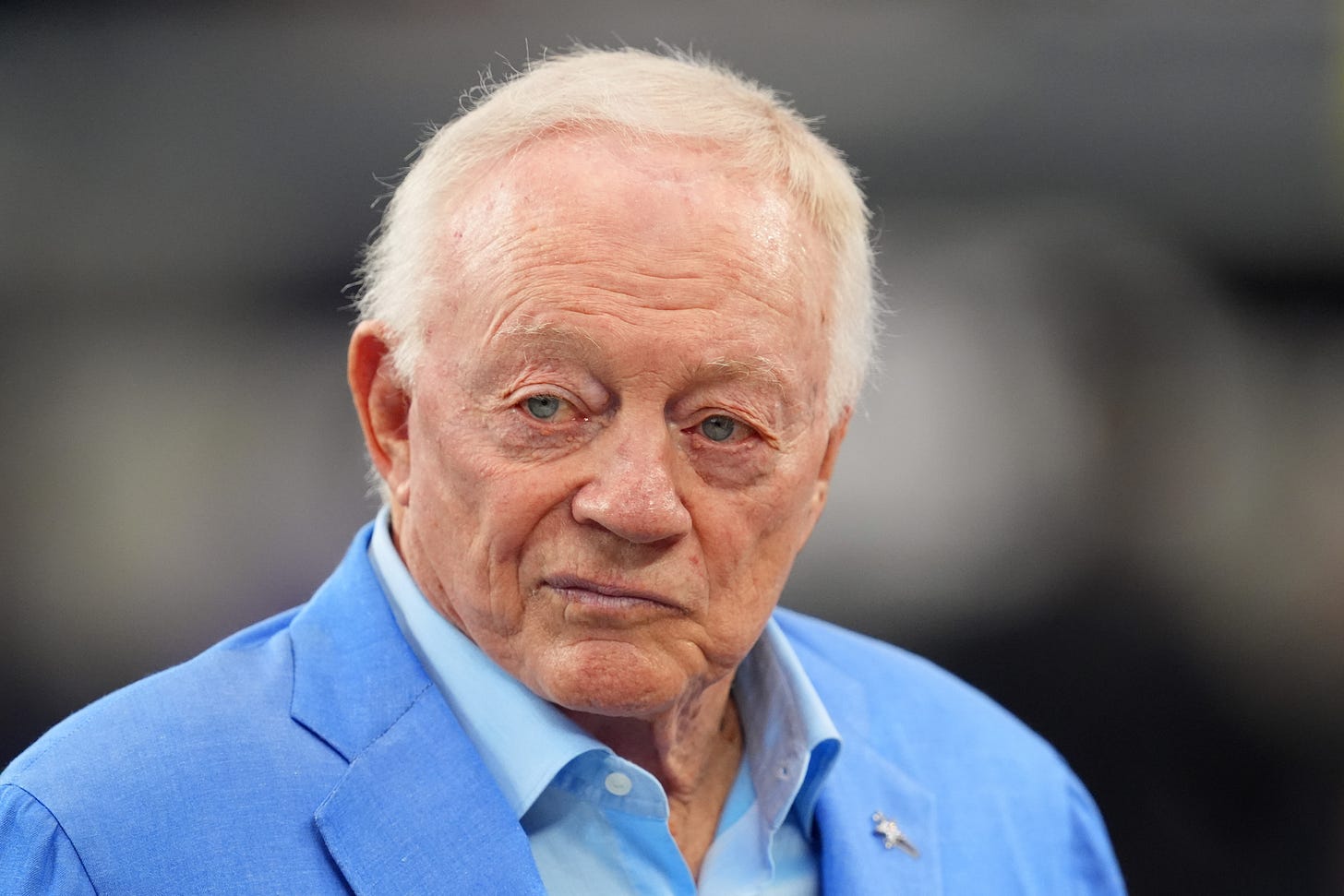
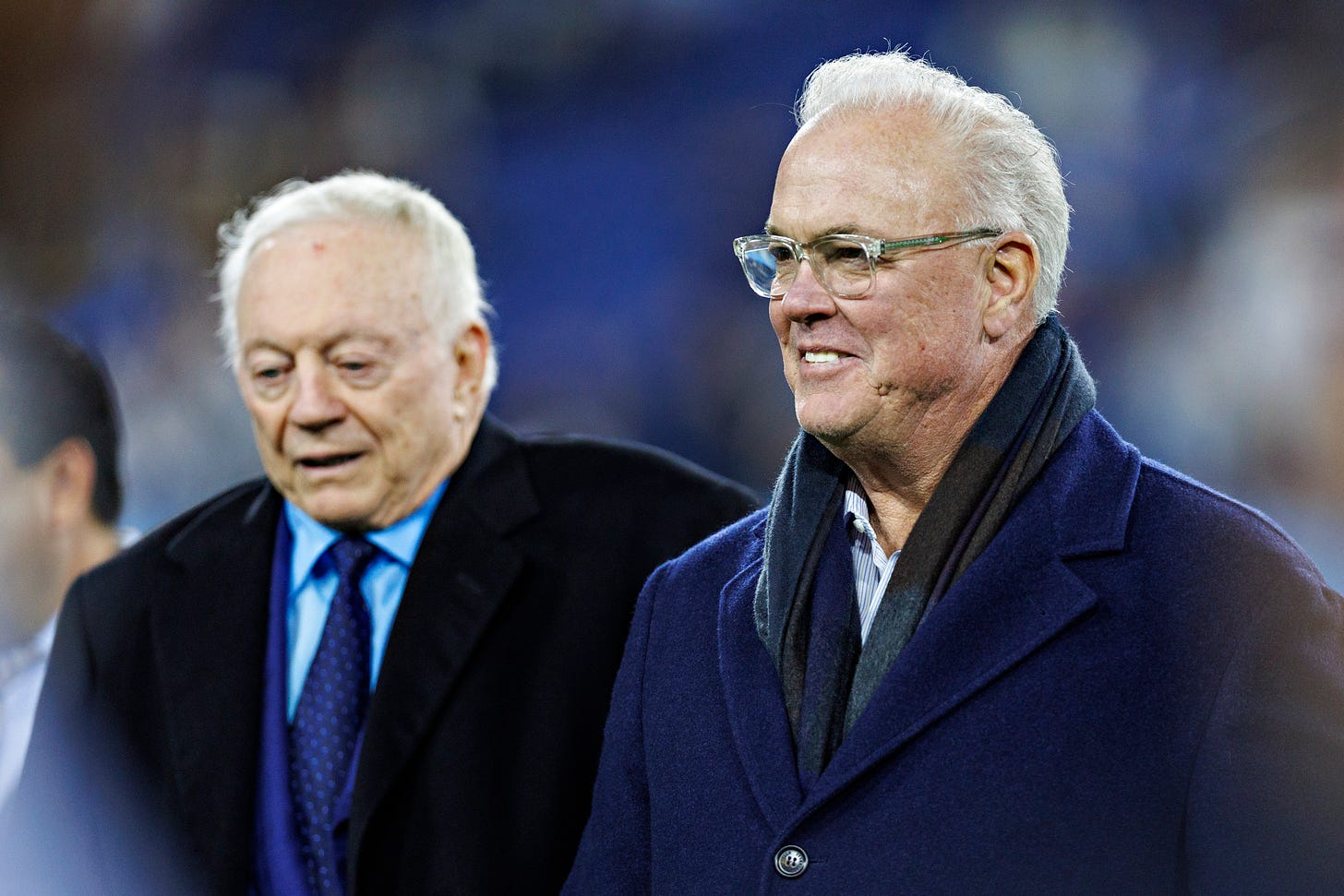
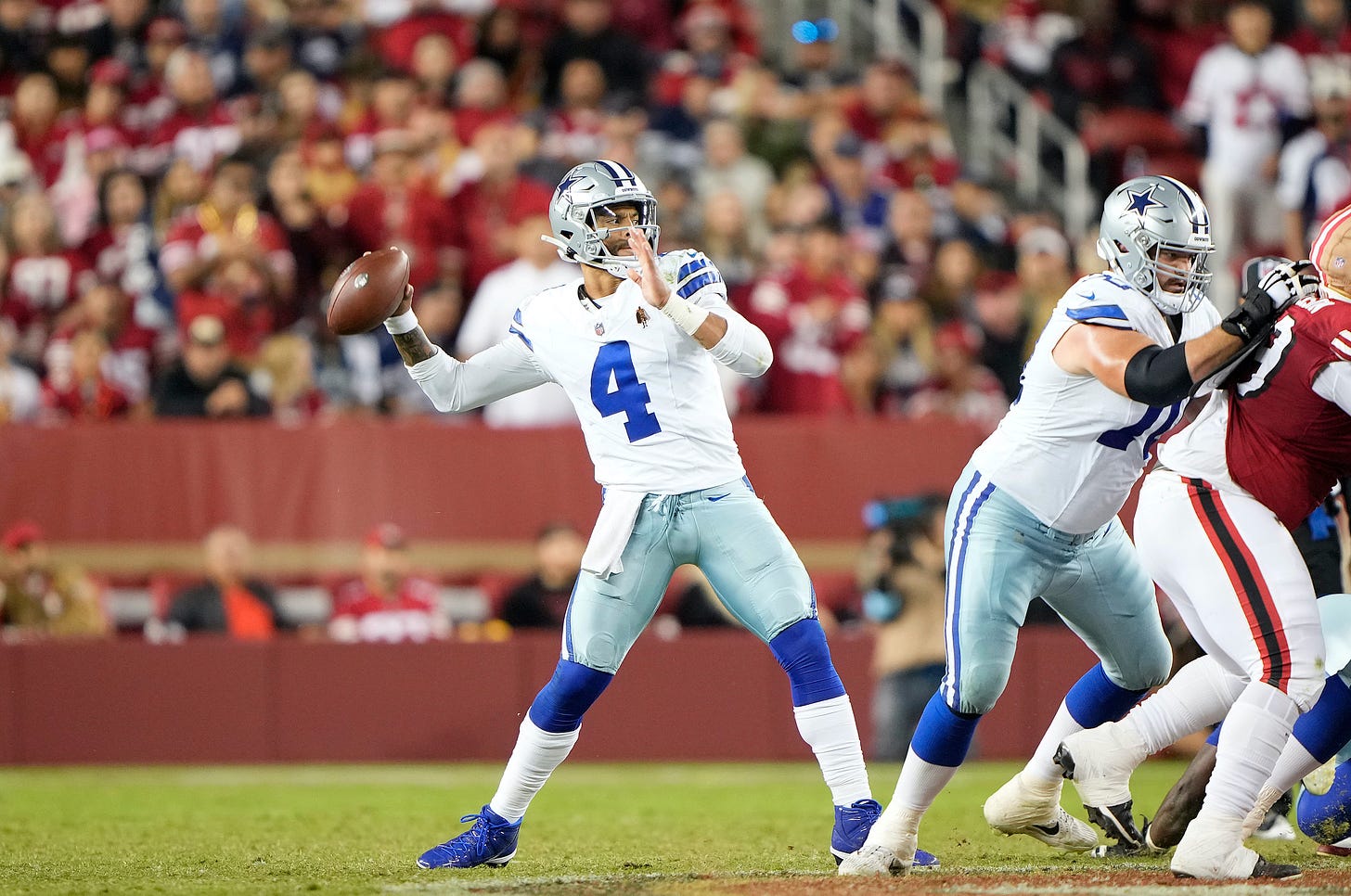
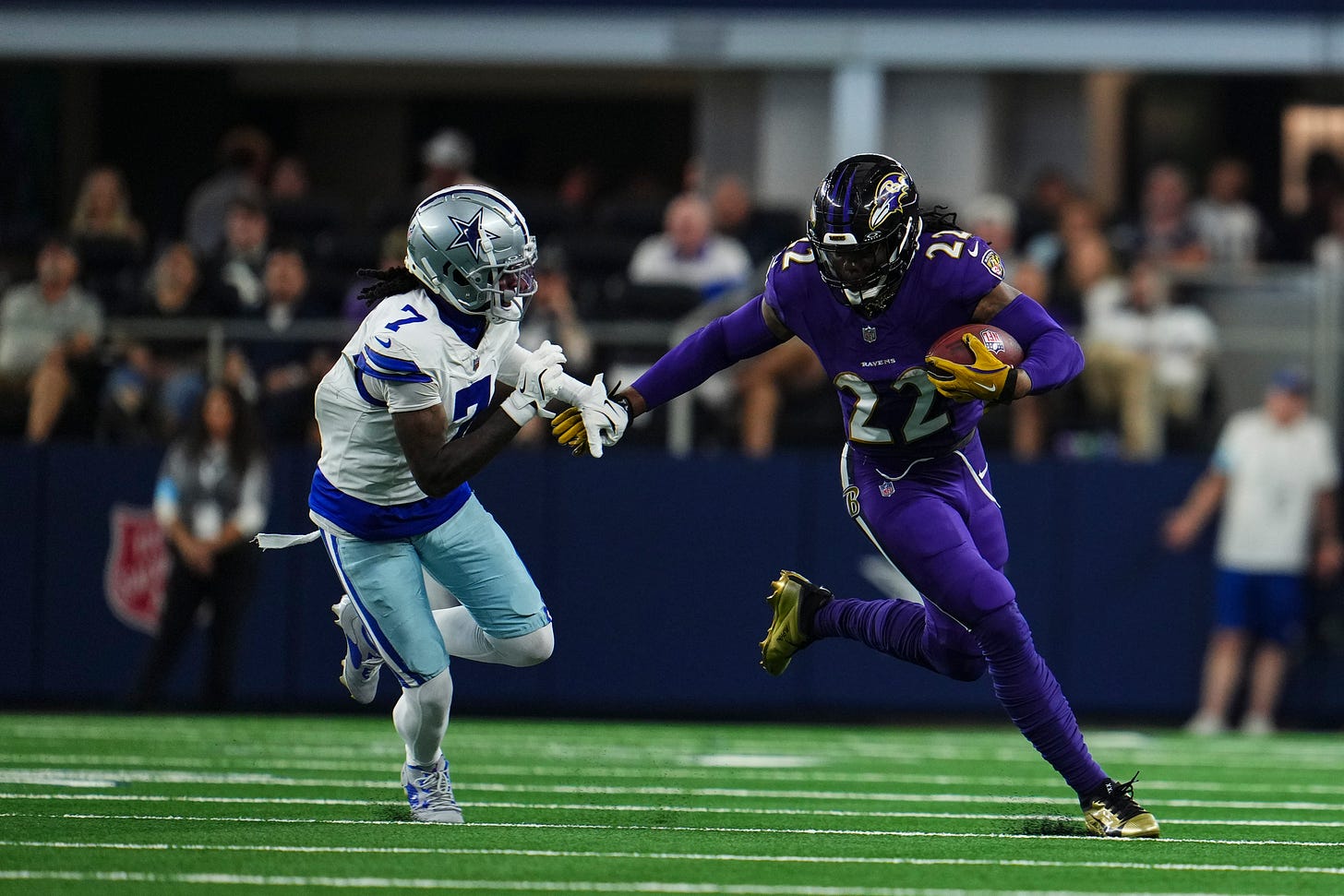
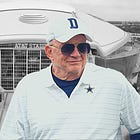

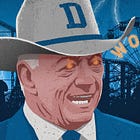
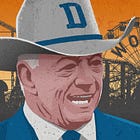
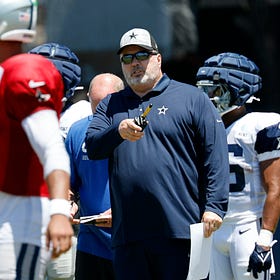

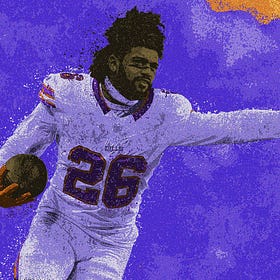

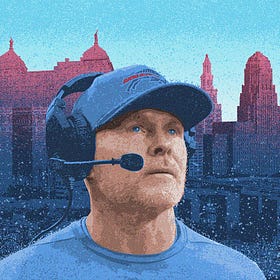

Quite the picture you've painted, Tyler. On behalf of many other fan bases, let me say, "Whew!"
the dysfunction is unreal